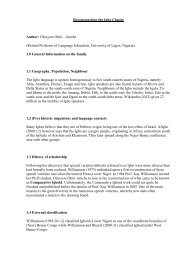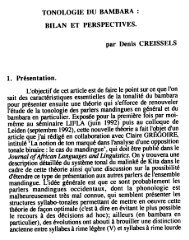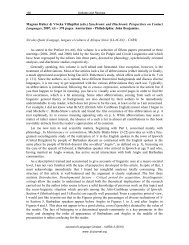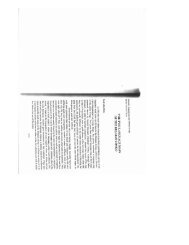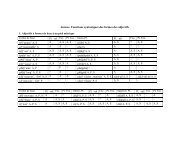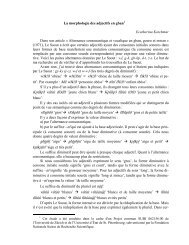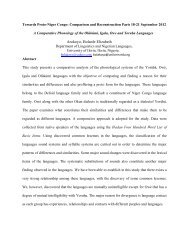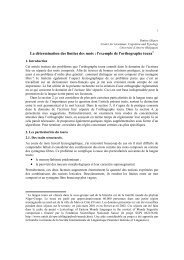1 A LINGUIST'S FIELD NOTES INTRODUCTION ... - Llacan - CNRS
1 A LINGUIST'S FIELD NOTES INTRODUCTION ... - Llacan - CNRS
1 A LINGUIST'S FIELD NOTES INTRODUCTION ... - Llacan - CNRS
You also want an ePaper? Increase the reach of your titles
YUMPU automatically turns print PDFs into web optimized ePapers that Google loves.
was attacked by highway robbers. We were all in a state of shock. It is at this point that<br />
he starts speaking in Zaar and goes into a long and lively discussion with Eski and their<br />
«brother». I switch on the tape-recorder which, for the first time, is put to work.<br />
A translation of the conversation is done for me, and so I get to know the details of<br />
the story. Having left Lagos that day and reached southern Kaduna in the middle of the<br />
night, the taxi driver had felt exhausted and so left the highway to find a garage in a<br />
small village where he could park and sleep in the taxi, probably one of those durable<br />
504 station-wagons, with three rows of seats, made in the Peugeot factory at Kaduna. At<br />
5 o’clock in the morning a car arrives, parks near the taxi and three men emerge from it<br />
armed with revolvers and sticks. They order everybody out of the taxi and relieve them<br />
of their money, watches and jewellery. The driver, who had had the sense to throw<br />
away his car keys, gets a good beating. One of the robbers, angered by Emmanuel’s<br />
empty wallet, hits him with it and throws it to the ground after removing his identity<br />
papers from it. Once the collection is over, the robbers take off into the darkness of the<br />
night undisturbed. After finding the car keys in the bush, the taxi driver takes off again<br />
and drops his passengers off at Bauchi. There, a bread-seller, a Yoruba woman that Ima<br />
knows, lends him taxi money for his trip back to Azare. The wallet incident and the<br />
generosity of the bread-seller are of particular interest to the listeners.<br />
At Ibadan, six months later, curiosity pushed me to begin the transcription of my<br />
recordings with this tape : 45 minutes of spontaneous narrative interspersed with<br />
questions, queries for explanations, comments, etc. 6 . This particularly lively dialogue<br />
brought together three educated Zaar people, all of them English teachers in a Teachers’<br />
Training College. The result is a discussion that is typically mixed linguistically : the<br />
basic language structure is Zaar, whereas a large proportion of the vocabulary, as well<br />
as many long expressions, comes from Hausa or English. Apart from the initial surprise<br />
that the discussion was mixed linguistically, the result of my work was positive. The<br />
borrowings made it possible for me not to spend too much time on the vocabulary and<br />
to tackle the grammatical problems from the corpus directly. This is not always<br />
possible at the beginning of the study of a language.<br />
6 This work of transcription, translation, linguistic analysis will be done with Sunday. See infra.<br />
16


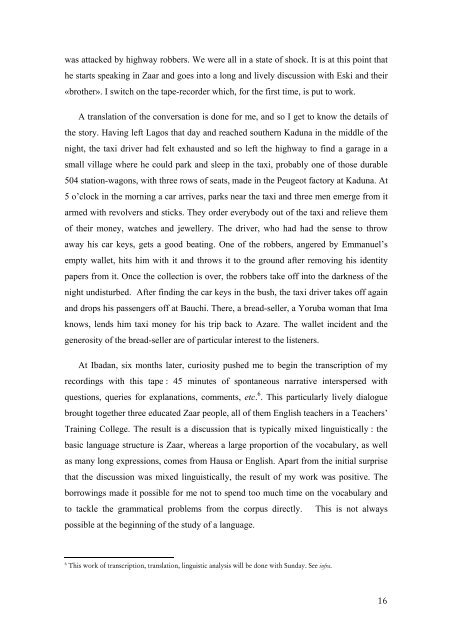
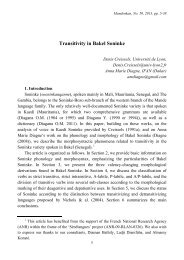
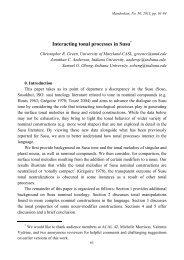
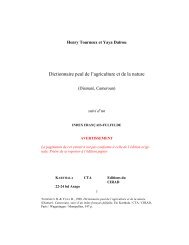
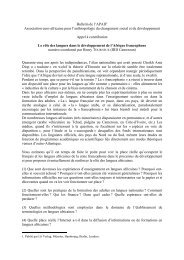
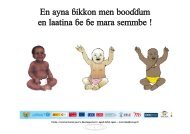
![[halshs-00645129, v1] Depressor consonants in Geji - Llacan - CNRS](https://img.yumpu.com/17832391/1/190x245/halshs-00645129-v1-depressor-consonants-in-geji-llacan-cnrs.jpg?quality=85)
